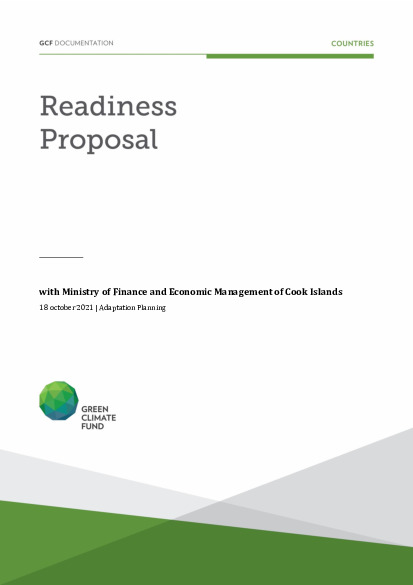Increasing the Resilience of the Cook Islands through Enhancing a National Adaptation Programme

Increasing the Resilience of the Cook Islands through Enhancing a National Adaptation Programme
The Cook Islands has been implementing a multi-sector approach to adaptation and resilience building. The Cook Islands Climate Change Policy 2018-28 and the Cook Islands Climate Change Country Programme 2018-2030 (Country Programme) have been the main policy and planning documents in this approach, by establishing priorities and forming part of the enabling environment for the development of climate change projects. Some of the proposed projects are now part of Concept Notes being considered by Government for transmission to the Green Climate Fund (GCF).
The Cook Islands Adaptation response is based on the best available science and information, but despite this, the constantly evolving climate change situation creates knowledge gaps. The lack of information in island-specific vulnerability data, ocean-based changes being driven by climate change and their impacts on atoll islands, and the utilisation of traditional adaptation practices are some areas with gaps of particular relevance for the Cook Islands. Similarly, a lack of data on the vulnerability of privately-owned assets and climate change impacts on businesses at a sector level are an increasing focus for the private-sector in the country.
This Enhancing the National Adaptation Programme (ENAP) proposal is designed to address climate change related knowledge gaps in the Cook Islands adaptation approach, and to strengthen our adaptation planning and legal frameworks to support the implementation of the Country Programme. The proposal activities will build knowledge and capacity to consider in detail the potential impacts of slow- onset events such as sea-level rise and ocean acidification, and the long-term adaptative response to those impacts. As well, this proposal includes activities to assess vulnerability of privately-owned infrastructure and climate change impacts on businesses at a sector level. A variety of climate impact and vulnerability assessments will be conducted, along with an analysis of traditional and ecosystem-based adaptation approaches.